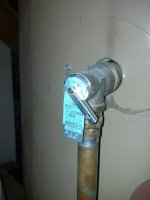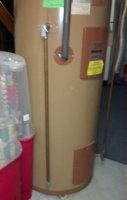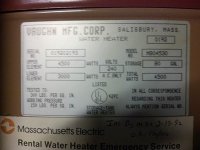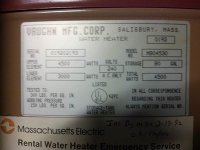SandraR
New Member
We have had this water heater since at least 2000 and today I noticed about a 3" puddle of water beneath the long copper pipe (see photographs). What is the purpose of that pipe and why every once in awhile a drop of water will drip from it. Again, have never seen this in the last 16 years or so.
Thank you!
Sandra
Thank you!
Sandra





